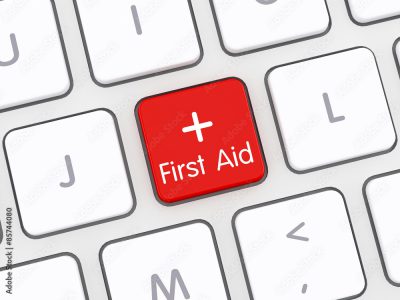WHS Compliant First Aid Kits

Emergencies are unpredictable. At work, offset the variable nature of a sudden health crisis or accident by being prepared. The best defence against accidents and injuries at work – no matter where you work – is a comprehensive emergency health plan.
As an industry leader in managed first aid services, we are pros at developing first aid programs that are suited to the specific needs of your business and meet or exceed the requirements of the WHS. Our expertise simplifies and streamlines the process – we work with you to determine the most effective first aid kit and training required for your workplace.
The Australian Work Health and Safety Regulations require businesses to have:
- at least one first aid kit
- first aid facilities
- staff trained in first aid (first aiders)
- access by all workers to the place where first aid is administered
Alsco can help. Australian workplace safety requirements are built into the core of our business. With our help, the Work Health and Safety (WHS) regulations for your business don’t have to be a burden.
First Aid Kits, AEDs & More
Alsco’s team methodically considers each of the WHS regulations. As part of our first aid consultation with your workplace, we recommend the appropriate number and type of first aid kits (office first aid kits are a bit different than industrial first aid kits, for example). We will also consult with your in-house team on automated external defibrillators (AED), eye wash stations, and other accessible safety tools as needed to comply with WHS. Our Managed Training Services for first aid include the required WHS employee training. These are just a part of the first aid kits and services we offer.
First aid needs may change over time and with use of the kits. Regular first aid kit maintenance is part of Alsco’s managed first aid service offering, ensuring your kit is always up to date with laws and legislations in Australia and on a state by state basis.
As part of first aid training, staff learn a range of skills, from basic wound care and how to deal with a cardiac arrest event as well as how to use our portable eye wash stations.
Dig into the details of what we offer by reviewing our processes.
Office, Kitchen, Workshop or Car – First Aid Kits to Fit Everywhere
Staying WHS compliant is our goal. Working with your team, we’ll determine whether the workplace is low-risk or high-risk and what first aid kit and other tools are required to meet and exceed WHS requirements. Each business is unique but, generally speaking, offices are considered low-risk. Other work environments, such as delivery service providers or mining businesses, are generally higher risk. After conducting the workplace assessment, we’ll create an efficient plan to train key members of your staff or team.
Another important way our first aid managed service keeps ahead of the WHS: We keep records of who has been trained and alert you before their training certificates expire. It is our goal, in conjunction with your onsite team, to build in sufficient time windows to re-train staff or bring new staff into the first aid fold. Last but not least, a comprehensive report detailing your staff’s training and compliance wraps up the effort.
Does My Workplace Need an AED?
Sudden cardiac arrest is a top killer of Australians. Every workplace can take a step to improve the risk of surviving a heart attack by installing an AED or automated external defibrillator, with their first aid kit. Easy to use, Alsco’s AED, the Heartsine Samaritan Pad 500P, on a rental program has simple press-button technology and step-by-step voice instructions, making it suitable for use by both professionally trained medics and staff or bystanders with zero medical training.
With a stated goal “to improve the survival rate of cardiac arrest victims in the state,” South Australia passed a law in December, 2022 requiring defibrillators in all public buildings, including schools, libraries, sports facilities, theatres, and many other places where people gather. The law comes into effect on January 1, 2025.
Does your workplace require an AED? We’ve found that a discussion about your business’s unique needs is the fastest route to WHS compliance and your safety team’s happiness. Let’s figure it out together.
